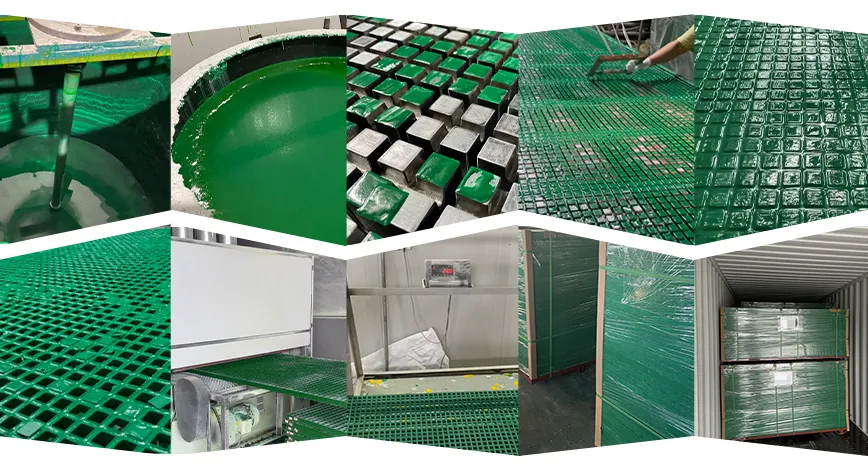loading...
- No. 9, Xingyuan South Street, Dongwaihuan Road, Zaoqiang County, Hengshui, Hebei, China
- admin@zjcomposites.com
- +86 15097380338
- Welcome to visit our website!
frp material water tank
The Advantages of FRP Material in Water Tank Construction
In recent years, the demand for durable and efficient storage solutions has led to the increased use of Fiber Reinforced Polymer (FRP) materials in various construction applications. Among these applications, FRP water tanks have emerged as a popular choice for both residential and industrial purposes. This article explores the benefits of FRP water tanks, highlighting their unique properties, environmental advantages, and overall efficiency.
Understanding FRP Materials
FRP, or Fiber Reinforced Polymer, is a composite material consisting of a polymer matrix reinforced with fibers such as glass, carbon, or aramid. The combination of these materials results in a lightweight yet exceptionally strong structure that is resistant to corrosion, weathering, and various chemicals. This high level of durability makes FRP an ideal choice for water storage solutions, where long-term performance and integrity are paramount.
Lightweight and Easy to Install
One of the most significant advantages of FRP water tanks is their lightweight nature. Compared to traditional materials like concrete or steel, FRP tanks are significantly easier to transport and install. This not only reduces the overall labor costs associated with installation but also minimizes the time required to set up a water storage system. The light weight of FRP reduces the need for heavy machinery, making the installation process safer and more efficient.
Corrosion Resistance
Water storage systems are often subject to corrosive environments, especially in areas with high moisture levels or saline conditions. FRP materials exhibit outstanding resistance to corrosion, ensuring that the integrity of the tank remains intact over time. This feature is particularly beneficial for applications involving potable water, where contamination risks must be minimized. By preventing rust and degradation, FRP tanks offer a safer and more reliable solution for water storage.
Thermal Insulation Properties
frp material water tank

Another advantage of FRP tanks is their excellent thermal insulation properties. The composite structure of FRP helps maintain a stable temperature inside the tank, which is crucial for preserving the quality of the water. This thermal stability is particularly beneficial for applications requiring temperature-sensitive liquids or chemicals. By minimizing temperature fluctuations, FRP tanks can help prolong the shelf life of stored materials, making them a cost-effective option in the long run.
Environmental Impact
As environmental concerns rise, it is essential to consider the ecological impact of water storage solutions. FRP tanks are generally produced using processes that consume fewer resources than traditional materials. Additionally, their long lifespan and resistance to decay reduce the need for frequent replacements, minimizing waste and environmental disruption. Moreover, FRP has the potential to be recyclable, further enhancing its sustainability.
Customization and Versatility
FRP water tanks can be easily customized to meet specific requirements. They can be produced in various shapes, sizes, and configurations, making them suitable for a wide array of applications, from residential to industrial. This versatility allows for tailored solutions that can accommodate unique space constraints and operational needs.
Cost-Effectiveness
While the initial investment for FRP tanks may be higher than traditional materials, the long-term cost savings are significant. Their durability reduces maintenance and replacement costs over time, and their efficient installation can lead to lower labor expenses. When considering factors such as longevity, low maintenance requirements, and reduced environmental impact, FRP water tanks often prove to be a more economical solution in the long run.
Conclusion
In conclusion, FRP water tanks represent a significant advancement in water storage technology. With their lightweight nature, superior corrosion resistance, thermal insulation properties, and environmental advantages, they offer practical and sustainable solutions for various applications. As industries continue to prioritize durability and efficiency, the use of FRP materials is likely to become even more prevalent, underscoring their importance in modern construction and storage strategies. Whether for residential use, agricultural needs, or industrial applications, FRP water tanks provide a reliable and innovative approach to water management.
-
Why Choose a Galvanized Water Tank for Your Storage NeedsNewsMay.21,2025
-
The Strength and Durability of FRP GratingNewsMay.21,2025
-
The Importance of Water Treatment Systems for Clean and Safe WaterNewsMay.21,2025
-
The Advantages of FRP Rebar for Construction ProjectsNewsMay.21,2025
-
Say Goodbye to Hard Water with a Reliable Water SoftenerNewsMay.21,2025
-
Maximize Your Water Storage with a Sectional Water TankNewsMay.21,2025
-
The Power of Filter VesselsNewsMay.19,2025
